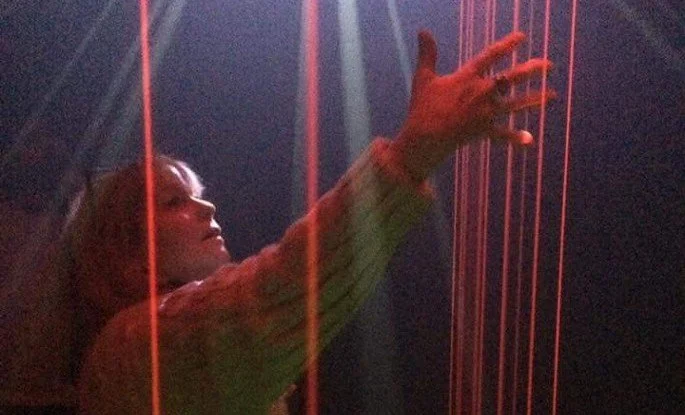My life has been filled with chaos of various kinds. This is a great irony to me, since all I ever wanted was peace. As a child, I just liked to be left alone so I could stay in my room and read a book. As a teen, I played it safe. I made choices that were calculated to avoid regret. As an adult, I’ve taken few risks. I like things quiet, calm, predictable. But instead, chaos has surrounded me – over and over.
Many times I have raged against this. I’ve asked the proverbial “WHY?!?” Over the years, I have spent countless moments screaming in my head (and sometimes out loud) to whomever would listen, “I’ve made choices in my life that were supposed to result in peace, WHY, WHY, WHY so much chaos!!!!?????” I have found it hard to just accept what comes my way. I don’t surrender well.
I fight. I fix. I push through. I don’t surrender.
And so, my life has been visited and re-visited with chaos…..so I can learn surrender.
Sometimes when I’m stuck in a pattern of behavior or thinking, I adopt a mantra - just something I recite to myself to re-direct my thought pattern. Several years ago, I was particularly stuck in anger over the chaos. Life just wasn’t going according to my agenda and I couldn’t find peace and acceptance. So, I chose a mantra. I chose the words that Mary the mother of Jesus said when the angel told her she was going to be impregnated by God, “I am the Lord’s servant, may it be unto me as you have said.”
I mean, think about it. You’re this 13 or 14 year old just minding your own business waiting to marry your betrothed Joseph and an angel appears to you and tells you, “The Holy Spirit will come upon you, and the power of the Most High will overshadow you. So the holy one to be born will be called, the Son of God.”
What??
This is going to put a serious kink in your plans. People will gossip about you. Joseph might not even marry you if he finds out your pregnant. You didn’t ask for this kind of chaos, and your response is, “OK, do whatever you want, I’m your servant” ? This seemed like a pretty extreme story about surrender, so I adopted the mantra. That year, every time I felt rage, or bitterness rising up, I would simply say, “I am the Lord’s servant, may it be unto me as you have said.” It was a powerful move in the journey of accepting what occurs in life and just taking it in without judgement or anger.
It calmed me.
Today, I was thinking back on the story that Mantra came from and it came to me in a whole different way.
Mary was being asked to open up her body and allow the Christ to be incarnated in her, and she surrendered to it. I reflected on how my life story is about me being penetrated by life circumstances and being opened up so that the Christ can be incarnated in me as well.
Incarnating the Christ spirit inside my own body.
So that my body becomes the very body of the Christ spirit in this world.
The Bible tells us three ways the Christ spirit was incarnated (isn't it fun that it's three?):
First: in creation “Through him all things were made ……In him was life.” Think about it, the creation is the first expression of the Christ. The Christ spirit is in every part of creation. If that doesn’t make you an environmentalist, nothing will.
Second: through the life of Jesus. This is the one we are taught about in church. We are taught the story like the birth and life of Jesus was the only incarnation of the Christ. But it wasn’t.
Third: through us. We are the third incarnation of the Christ. His body here on earth. And in order to actually be that, we have to surrender and open ourselves up to be penetrated by the spirit of love and to become the container, the womb and the birther of the same creative, loving, healing force that we see in the first incarnation, and the second….
“I am the Lord’s servant, may it be unto me as you have said.”
(To comment, click on header)







